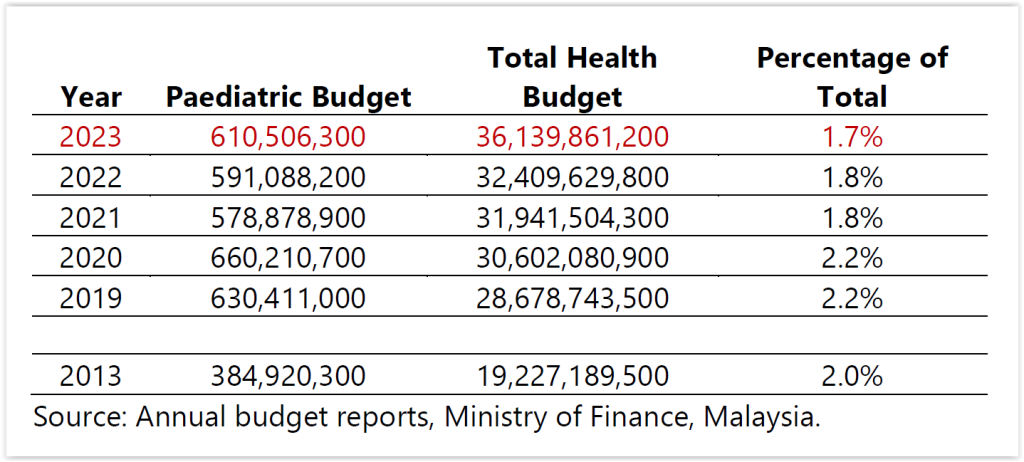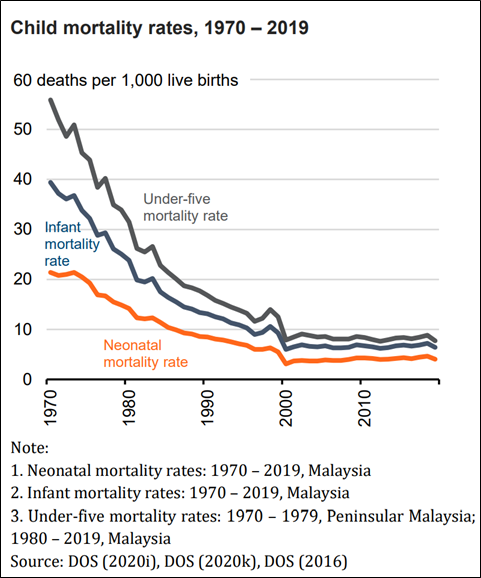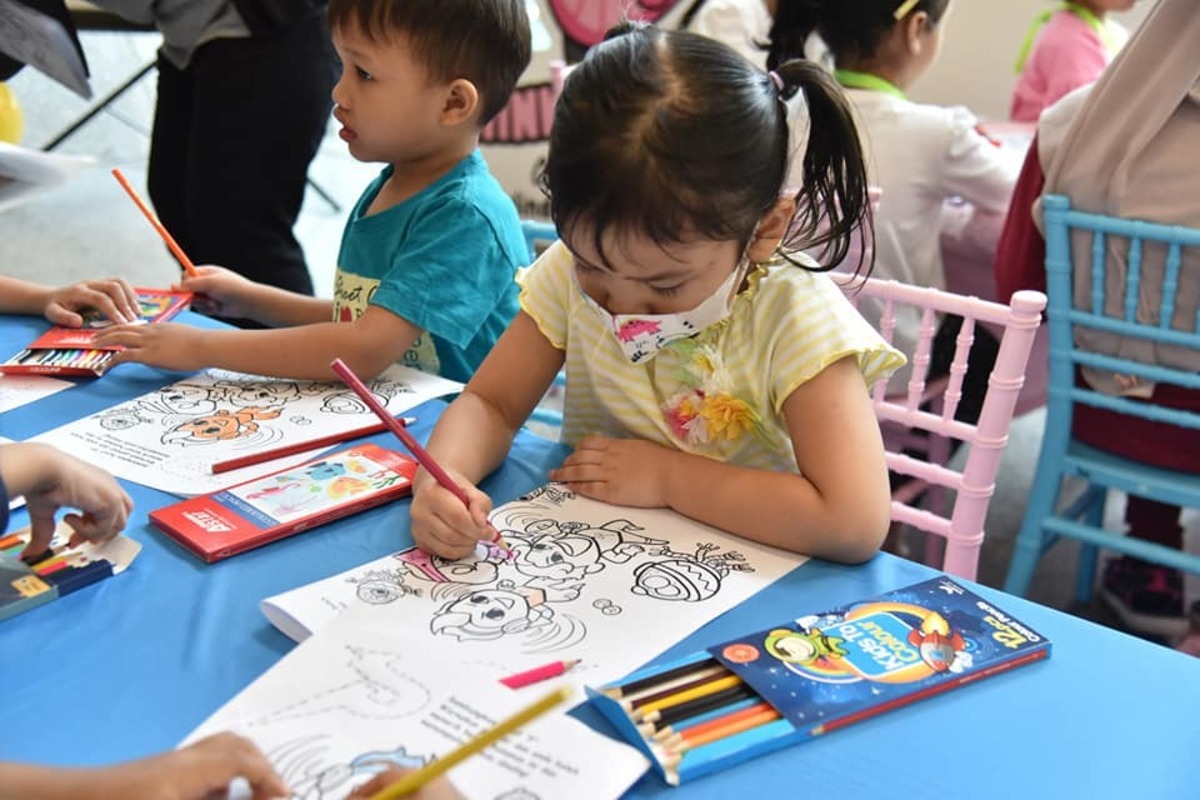This may seem an odd question to ask, but not if it is directed at the government, its ministries, and agencies. It is being asked in view of the impending Budget announcement in October 2023.
Politicians and ministers often tell us how much they love our children. We hear from them things like “Children are our future …we must invest in our children” and other such similar rhetoric.
But as the old proverb goes, “The proof is in the pudding”. Or as the original version goes, “The proof of the pudding is in the eating”. This means that we can gauge all assurances about children by actions.
How much do the ministries allocate as investments in our children’s learning, wellbeing, health, and safety? How hard are lawmakers fighting for bigger allocations for these to be ensured?
Let us sample some of the “pudding” to taste the flavour of the politicians’ love for our children.
First on the tasting menu: child health, the seed of the nation’s future.
The table below shows the Ministry of Health’s (MOH) total health budgets and paediatric budgets for the past five years, as compared with ten years ago.
In 2023, the total budget assigned to the MOH was RM 36,139,861,200, but the paediatric budget was only RM610,506,300, or 1.7 per cent of the total health budget. This is a ten-year low, dropping away from 2 per cent in 2013.

The amount actually allocated to paediatric care in MOH hospitals is a tiny morsel. It has, relative to the total health budget, been decreasing over time.
The MOH might say that other budget allocations are also used to meet children’s health needs. We recommend they visit Paediatric Intensive Care Units (PICUs) and Neonatal Intensive Care Units (NICUs) all over the country that are struggling with space, equipment, and nursing resources, unlike adult ICUs.
Every single day, PICUs and NICUs have to search for beds for ill children and babies. We spend large sums on adults with chronic illnesses, but very little on these children who are “our nation’s future.”
We need to triple PICU and NICU beds and resources, reinforced by health promotion for our children.
Alarmingly, the critical indicators for child health in 21st century Malaysia have stagnated. Deaths among newborns, infants, and children have seen no discernible progress for the past two decades.

One child out of every five children aged under 5 is stunted (21.8 per cent in 2019). The number of underweight Malaysian children aged under 5 has increased from 12.4 per cent (in 2015) to 14.1 per cent (in 2019).
Wasting among our children has increased from 8 per cent to 9.7 per cent during this same period. Our children, “whom we love”, are becoming increasingly malnourished.
This, in the long term, is significantly associated with lower IQ, reduced productivity, higher paradoxical risk of obesity with non-communicable diseases, and premature deaths. Eventually, if they survive, such childhood risks place our children at increased risk of dementia.
Second on the tasting menu: child protection.
According to a Malaysian Administrative Modernisation and Management Planning Unit (MAMPU) study from 2019, we have one social worker for 8,576 Malaysians, with 3,814 Social Welfare Department (JKM) personnel focused on social work.
The reality is that, among over 3,800 JKM personnel, there are very few trained social workers, with only a small number involved in child protection. The average JKM officer has a frightening caseload of 50 to 100 child protection cases a year.
Child abuse is an epidemic, with most child victims missed until too late. The bare minimum we need to meet child protection services is 30,000 to 40,000 trained social workers in JKM.
With the current focus and level of initiative, what are the chances of reversing the epidemic? We have eight public institutions of higher learning and five private intuitions producing a small number of trained social workers each year. There is no major initiative to strengthen the JKM workforce and its professionalism with trained social workers.
Third on the tasting menu is a time-hardened, less palatable chunk of the pudding: how we treat refugee, stateless and migrant children.
Actions thus far mock the Convention on the Rights of the Child that Malaysia ratified. If we treat some children very poorly, we damage all our children’s futures, as it undermines our psychosocial, spiritual, and moral wellbeing.
Long overdue initiatives to transfer undocumented migrant children from Immigration Department detention centres to safe shelters are moving at a snail’s pace. Meanwhile, their health, education, and wellbeing continue to be neglected. In addition, there have been recent raids with the detention of even more children.
There is much more on the tasting menu to sample. Each year, approximately 900 to 1,000 children die on our roads, and another 500 drown.
Children with disabilities are being left further behind their peers when it comes to accessing education facilities and services, with woefully inadequate inclusion systems and reasonable accommodation. Due to a poverty of understanding, knowledge, skills training, surveillance, and good governance, there are instances of abuse and bullying of children with disabilities in service centres and residential institutions.
Poverty has worsened among children, especially in Sabah and inner-city areas. The consequences of child marriage and teenage pregnancies are damaging to the national conscience.
Disaggregated data show that under-five deaths for Orang Asli children is 11 times that of other ethnic groups. Vaping is a huge and growing epidemic among our children, and current policies have worsened it.
There is more of this tasting menu. The problems are chronic and are worsening. No government can fix all these problems in a single term.
This demands that everyone — across the political spectrum, the government, society, and the entire nation — embark on a fresh start to improve the situation of Malaysia’s children.
We hope Budget 2024 will give our children the resources that they deserve from those who can make a difference. If we do not invest in our children now, there can be no meaningful tomorrow for this nation.
Signatories
- Dr Amar-Singh HSS, consultant paediatrician, child-disability activist, and advisor, National Early Childhood Intervention Council (NECIC).
- Yuenwah San, the OKU Rights Matter Project.
- Dr Selva Kumar Sivapunniam, consultant paediatrician and president, Malaysian Paediatric Association (MPA).
- PH Wong, Childline Foundation.
- Dr Musa Mohd Nordin, consultant paediatrician and past president, Perinatal Society of Malaysia.
- Hartini Zainudin, Yayasan Chow Kit, Voice of the Children.
- Sangeet Kaur Deo, member, Harapan Law Reform Group.
- This is the personal opinion of the writer or publication and does not necessarily represent the views of CodeBlue.






